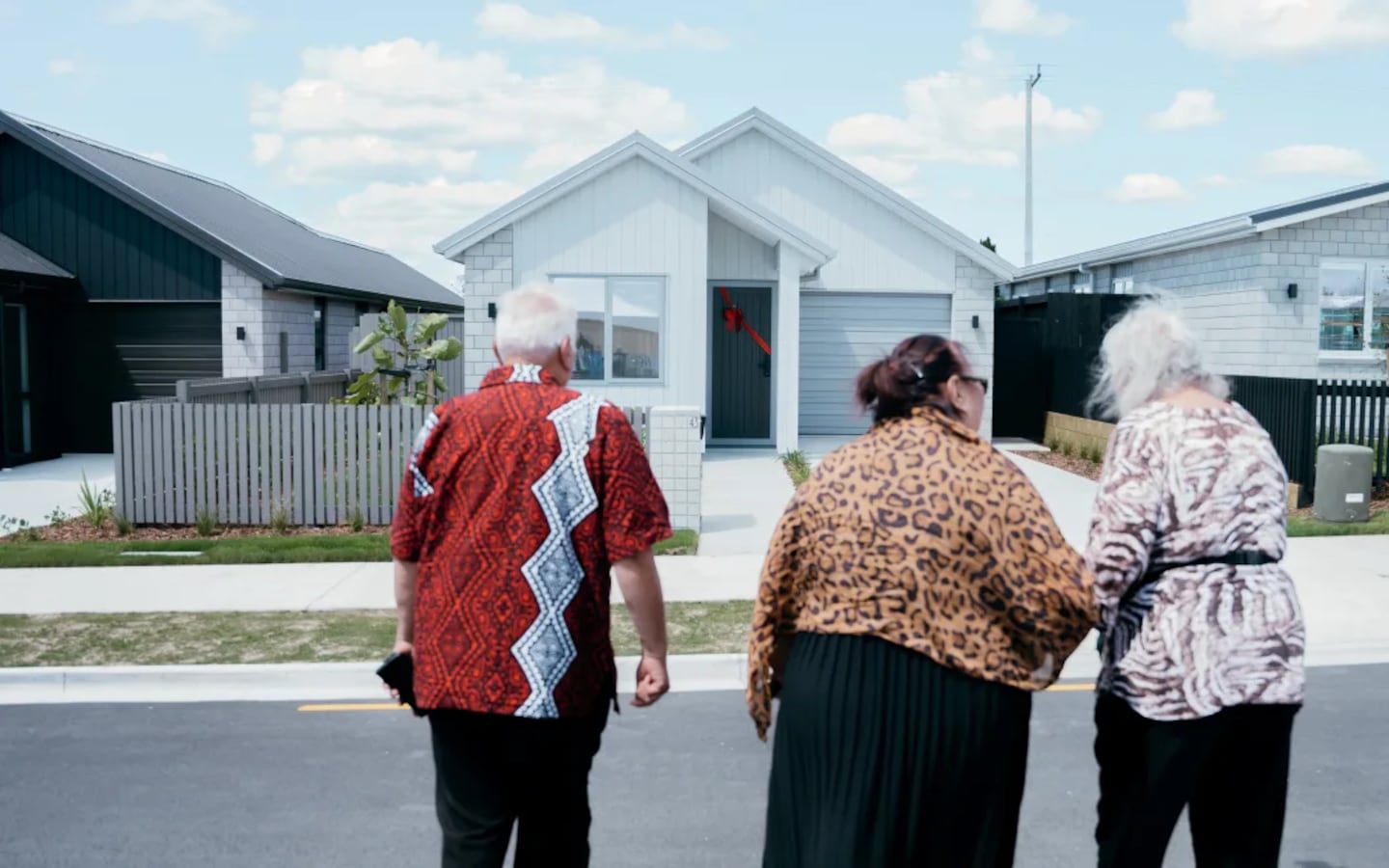This article was first published by RNZ
An affordable rental initiative is being expanded by a Rotorua hapū trust, which hopes to get more of its whānau into home ownership.
The Ōwhata Kōhanga Rākau housing initiative opened the first houses in its Ōwhata development in June, and recently acquired 39 more homes in the suburb of Koutu.
Ōwhata 2B and 7 Trusts chair Jason Rogers said the trusts established Ōwhara Kōhanga Rākau three years ago to develop mixed tenure housing on the site of a tree nursery managed by the hapū.
Rogers (Ngāti Whakaue, Ngāti Te Roro-o-te-Rangi) said the development will eventually include 93 mixed tenure homes, made up social rentals, affordable rentals and shared ownership homes.
Thirty-eight affordable rentals are completed with whānau living in them, he said.
“Affordable rentals are charging 80 percent of the market rent and of course that saving, that 20 percent discount to the market rent is significant for our whānau out there.”

The average rent for a three bedroom home in Rotorua sits at about $700 a week, at the Ōwhata development rent sits at about $550 a week, Rogers said.
“The idea with our model is that we actually don’t want you in the affordable rentals longer term, we want you to move up to shared ownership.
“With the 38 whānau that are living in our affordable rentals out at Ōwhata, one of the whānau has been there since we completed the development, which was late last year, and they are now looking to buy their first home... so they come out of affordable rentals, they’ll end up owning their own house which is wonderful. That’s what we’re all about.”
Rogers said under the shared ownership model, whānau start out buying a 75 percent stake in their house, with the trust funding the other 25 percent, over the next several years whānau purchase the Trust’s shareholding out.
“[The whānau] feedback to us is ‘we’d given up hope of owning our own homes,’ so this is a wonderful way for them to get into home ownership especially back on some of their ancestral lands as well.”
Without these shared ownership models it was hard for younger people especially to purchase homes, he said.
“Certainly in our case what we’ve seen is that some of our whānau have been living in less then desirable housing conditions, a lot of damp, wet, cold houses through to overcrowded houses, through to in one case whānau living in a car.”

Expanding into Koutu
The trusts recently announced they would be expanding the housing initiative with the unconditional purchase of 27 completed homes, and 12 vacant sections for new builds, in Frank Street, in the suburb of Koutu in Rotorua.
Rogers said they were fortunate to receive some funding from the Ministry of Housing and Urban Development which enabled them to take over the property.
They sent out expressions of interest for the first 11 homes at the new site, which start construction in October. By the next morning they had received over 80 applications for those 11 homes, he said.
“The need for housing is definitely still there, in Rotorua the demand is still there.”
Rogers said it was great to be expanding, but a collective effort was needed by the council, iwi housing providers, the government and the private sector to get more housing stock, he said.
“Rotorua has suffered from a low build rate over the years, so consents are generally under a hundred a year... but the last three years the building consent numbers have jumped up to 400 which is really fantastic but it’s only a step in the right direction there’s still more that needs to be done."
In spite of the challenges, Rogers said it was a great model for other iwi to look at developing.
He said affordable rental programs like Ōwhata Kōhanga Rākau were really critical to addressing affordable housing supply long term.
By Pokere Paewai of RNZ



